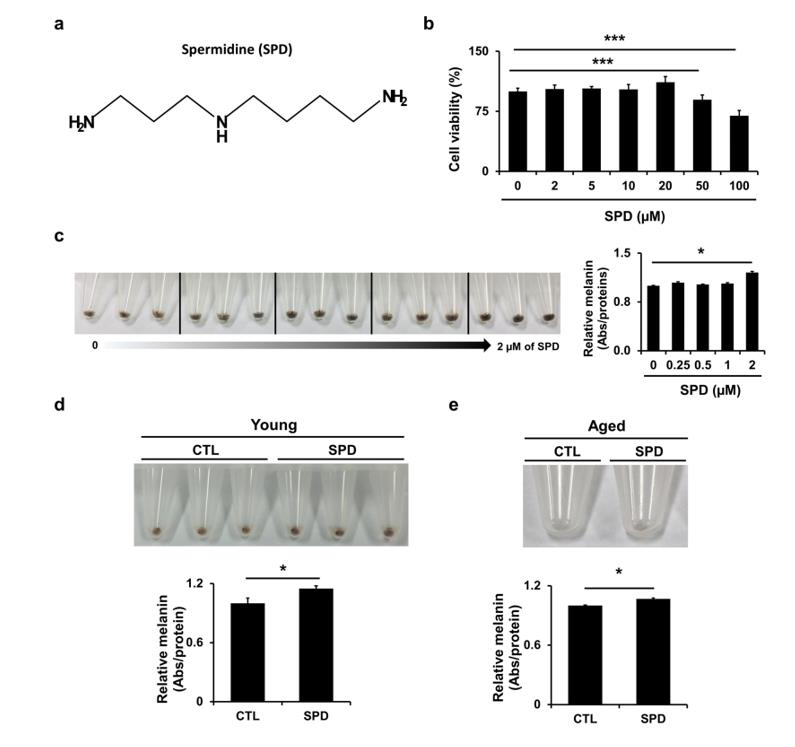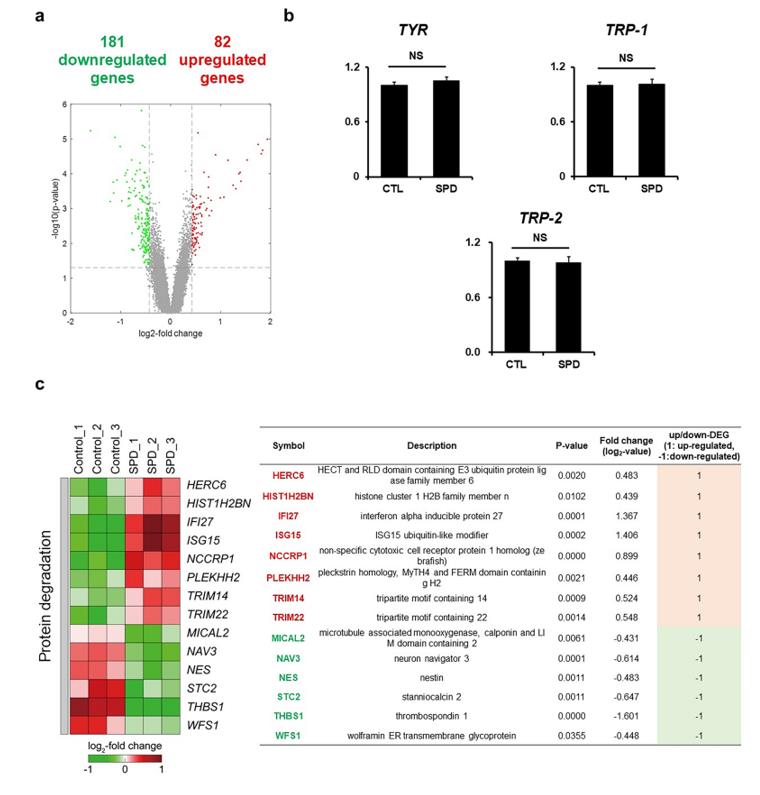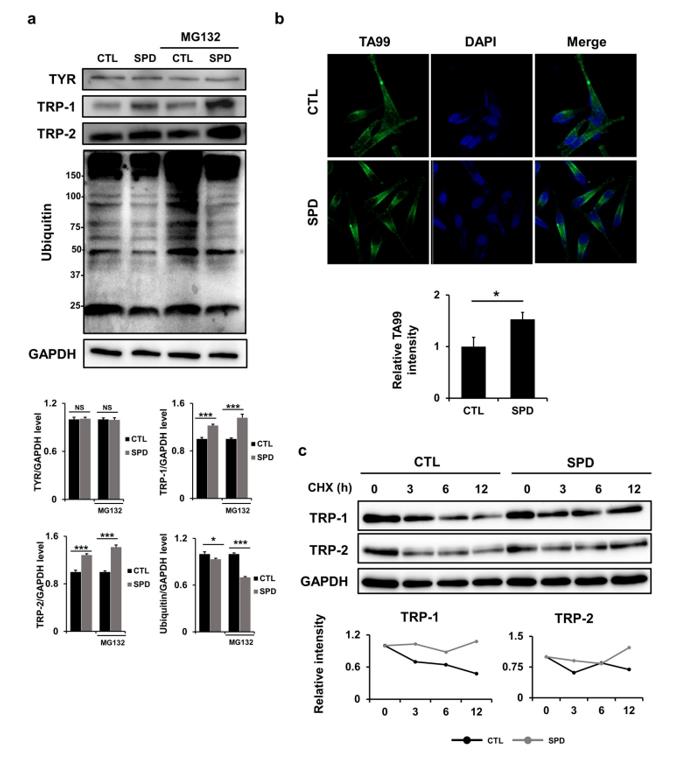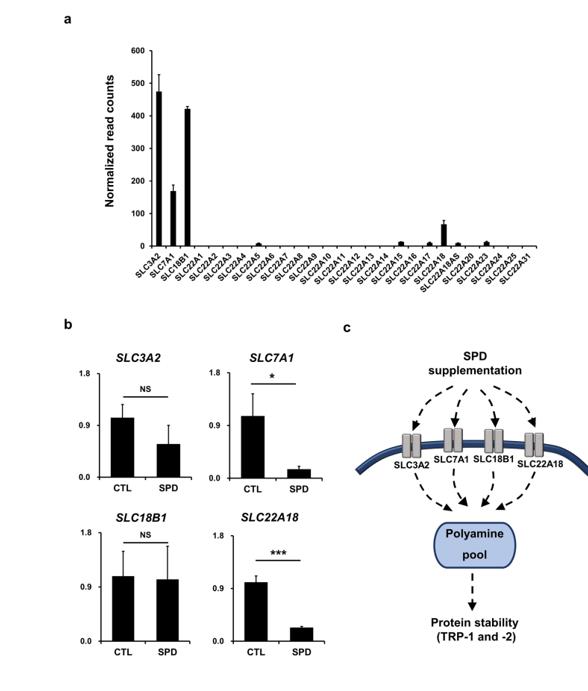Hypopigmentation is a skin disease, mainly manifested by melanin reduction. Common symptoms include vitiligo, albinism and hypopigmentation after skin inflammation. At present, the main treatment for hypopigmentation is oral medicine, but oral medicine will cause skin atrophy, gastrointestinal discomfort and other adverse side effects. Therefore, it is necessary to develop a natural substance without side effects to treat hypopigmentation.
Recently, Scientific Reports published an article entitled "A systematic exploration reveals the potential of spermidine for hypopigmentation treatment |through the stabilization of melanogenesis-associated proteins". The results show that spermidine can be treated by stabilizing melanogenesis-associated proteins. hypopigmentation.
一、Spermidine treatment increases melanin production
In order to study the effect of spermidine on melanin production, the research team treated the melanin in MNT-1 cells with different concentrations of spermidine. Through quantitative analysis, it was found that spermidine treatment increased melanin production.

二、Spermidine can regulate the protein degradation system related to melanogenesis
In order to prove that spermidine can regulate genes involved in protein degradation, the research team found 181 genes down regulated and 82 genes up regulated by systematically detecting spermidine treated cells, excluding genes related to melanogenesis. To further prove, the research team analyzed the effect of spermidine on the expression level of tyrosinase gene family TYR, TRP-1 and TRP-2, which are genes closely regulating melanin production. The mRNA expression level confirmed that spermidine did not change the expression of melanogenesis related genes. However, the activity of several genes is changed by spermidine and related to protein degradation. Several changed genes are related to ubiquity, which is a protein degradation system related to melanogenesis.

三.Spermidine regulates the stability of proteins and promotes melanin production.
The production of melanin is regulated by the balance of synthesis and degradation of melanin related proteins. Spermidine treats TYR, TRP-1 and TRP-2 genes. Through the action of transporter genes SLC3A2, SLC7A1, SLC18B1 and SLC22A18, it can increase the level of polyamines in cells, thus increasing the stability of proteins related to melanin production to promote melanin production in vivo.


In conclusion, this study shows that the natural compound spermidine has a potential role in the treatment of hypopigmentation, and has certain application value in the field of cosmetics and health products in the future.
Reference:
[1].Brito, S., Heo, H., Cha, B. et al. A systematic exploration reveals the potential of spermidine for hypopigmentation treatment through the stabilization of melanogenesis-associated proteins.Sci Rep 12, 14478 (2022). https://doi.org/10.1038/s41598-022-18629-3.
Post time: Sep-28-2022

